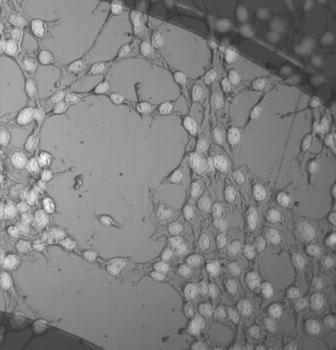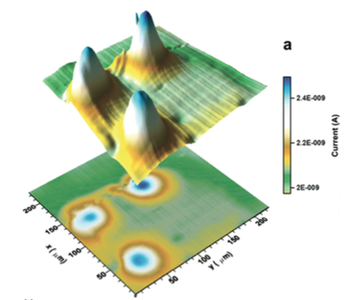
The development of new materials for regenerative medicine, drug delivery, cancer therapy, bio-implantable devices and sensor applications is a hot topic in science. For these applications, the employed (nano-structured) materials have to be not only biocompatible and biodegradable but also able to selectively activate specific cell responses such as adhesion, proliferation, migration and metabolic activities. The group studies the effect of material physical chemical characteristics on the cell biology. The investigated materials are controlled and shaped at the nano/micro-scale allowing the study of the cell response to chemically controlled microenvironments. The interaction between individual crystals of calcite used to entrap doxorubicin with cancer cells has been characterized for the purpose of studying how the alterations of the chemical microenvironment of the cells induce the release of the drug from the crystals. The study has shown that these crystals can be used for the transport and controlled release of the drug.
[Advanced Healthcare Materials 2015; 4(10):1510-1516]

Dr. Rapino developed strategies for the modification and post-modification of metallic and semiconducting surfaces by SECM. These strategies are based on the localized desorption and grafting of molecules to modulate the surface properties with a micrometric control. The surface properties, including the local reactivity and kinetics of electron transfer to redox substrates, were characterized by SECM. The 3D micro-structuring and micro-shaping of (soft) material is an emerging and central topic of the group.
[Journal of Materials Chemistry 2010; 20(34):7272-7275]
[The Journal of Physical Chemistry C 2010; 114(50):22165-22170]
[Nature Nanotechnology 2006; 1(2):122-125]